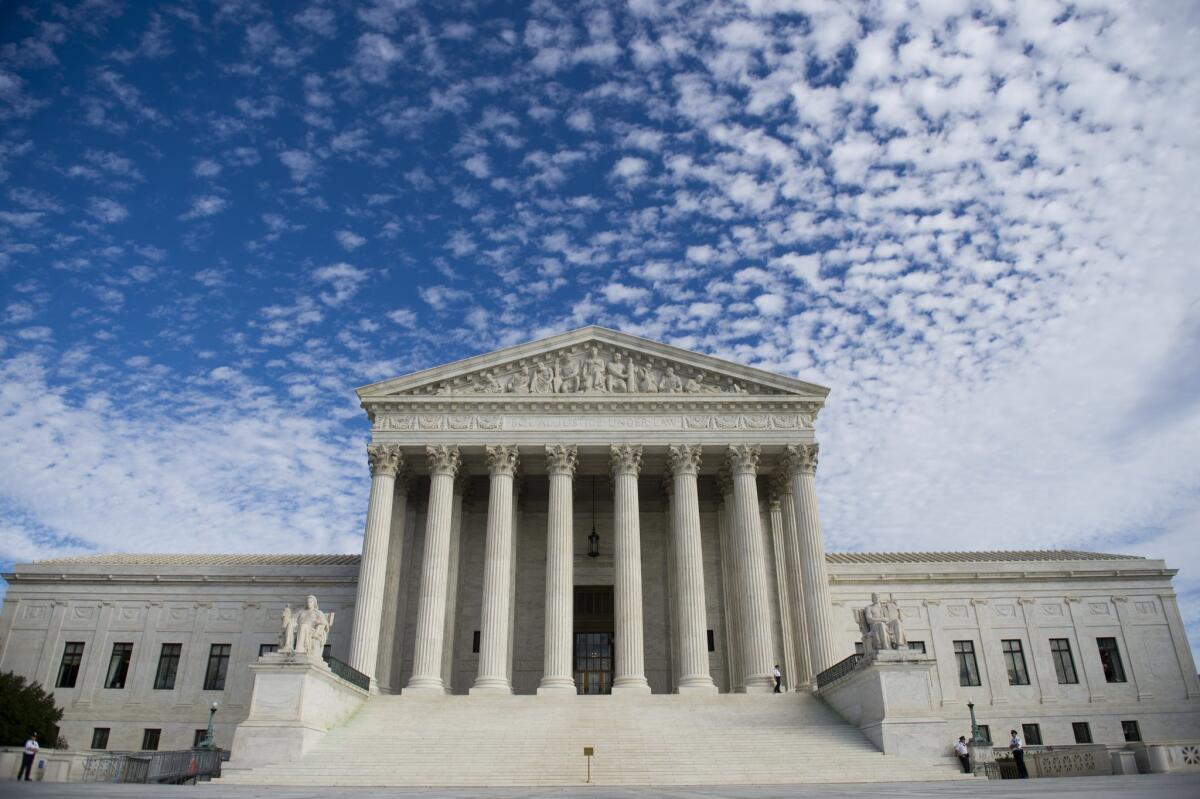Supreme Court won’t hear Texas challenge to California LGBTQ law

- Share via
WASHINGTON — The Supreme Court on Monday rejected an unusual complaint from the state of Texas alleging that California had unconstitutionally discriminated against it by refusing to pay the travel costs of California state employees who go there.
Texas Atty. Gen. Ken Paxton had sued directly in the high court alleging that California imposed “economic sanctions” on Texas and 10 other conservative states that passed laws permitting discrimination based on sexual orientation. The other states were Alabama, Iowa, Kansas, Kentucky, Mississippi, North Carolina, Oklahoma, South Carolina, South Dakota and Tennessee.
Justices Clarence Thomas and Samuel A. Alito Jr. dissented from the decision to not hear the case.
Paxton had argued that California’s actions violated the Constitution’s protection for interstate commerce.
California state lawyers said Texas misstated what was at issue.
In 2016, the California legislature passed AB 1887, which prohibits state agencies from approving “state-funded or state-sponsored travel” to any state that enacted a law that discriminates against LGBTQ people.
The measure “is not a trade embargo or travel ban. It does not bar any commerce or prohibit any travel into or out of California,” California state attorneys said. “It instead limits what out-of-state travel California will pay for.”
In December, the justices rejected another novel legal challenge from Paxton, who had urged the court to toss out the electoral votes of four states: Pennsylvania, Michigan, Wisconsin and Georgia — which were crucial to President Biden’s victory over Donald Trump.
Paxton was also behind the broad challenge to the Affordable Care Act that reached the high court. He claimed the entire law should be voided because Congress in 2017 reduced the tax penalty to zero for those who did not have health insurance.
More to Read
Get the L.A. Times Politics newsletter
Deeply reported insights into legislation, politics and policy from Sacramento, Washington and beyond. In your inbox twice per week.
You may occasionally receive promotional content from the Los Angeles Times.









